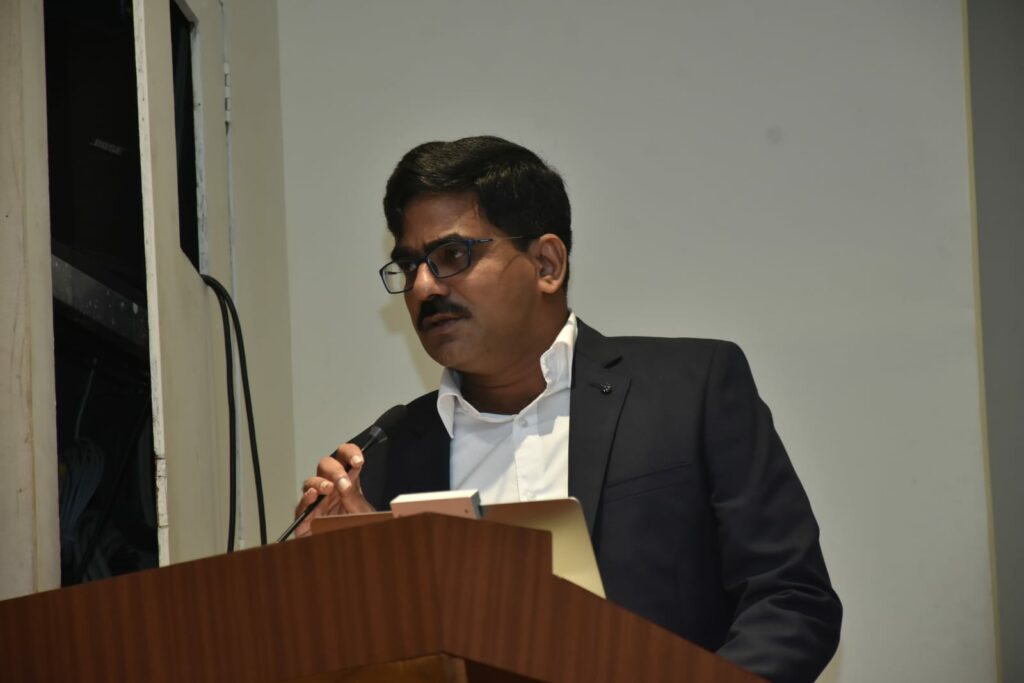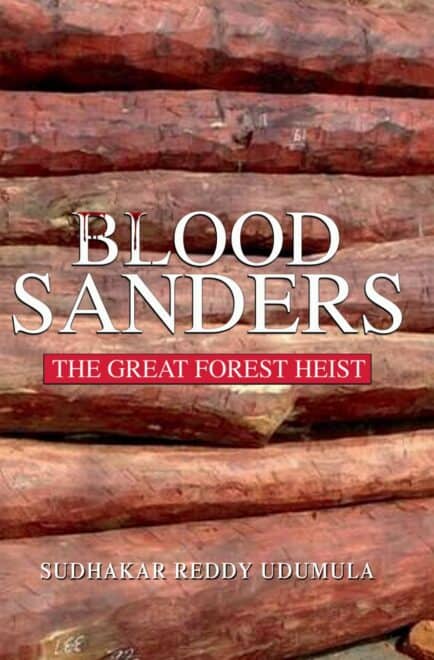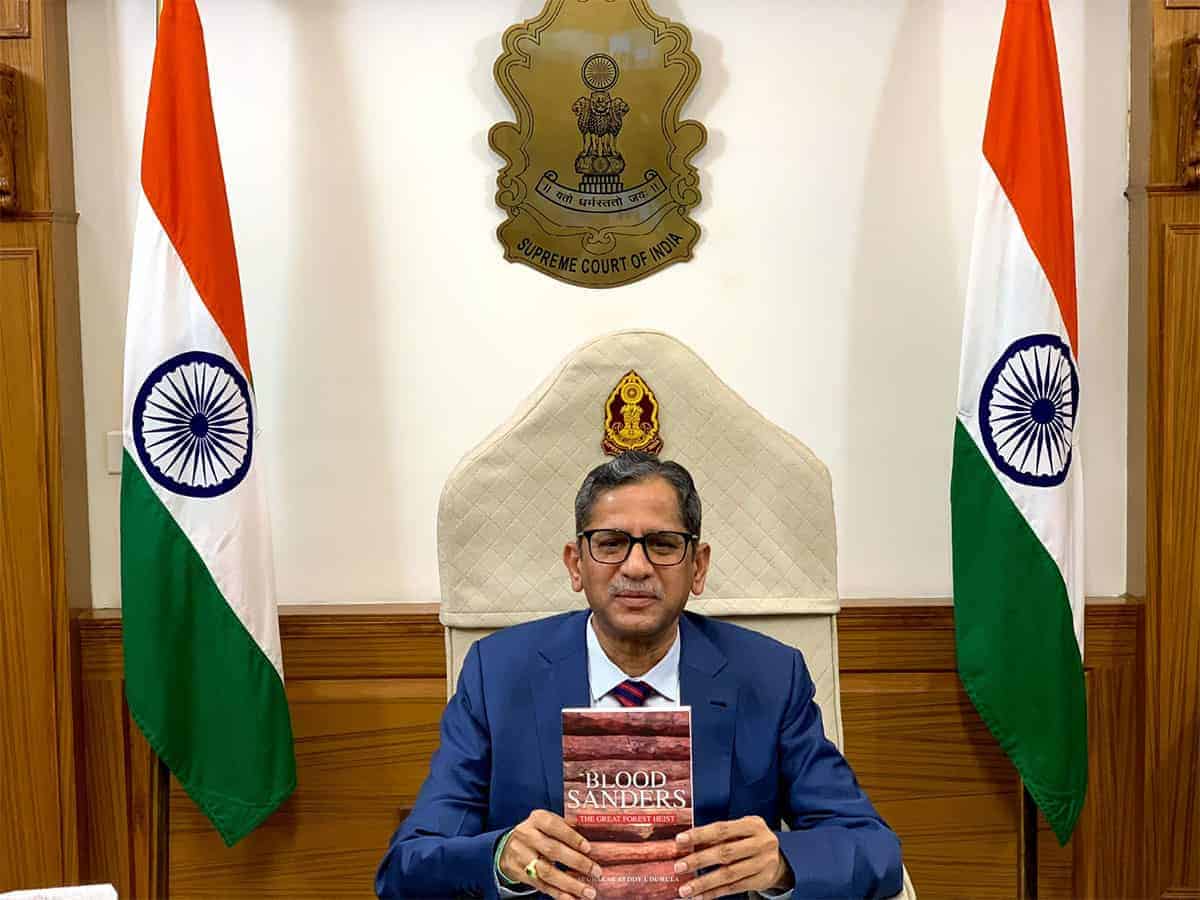Hyderabad: Blood Sanders – The Great Forest Heist, is the first book written by senior journalist Sudhakar Reddy Udumula. It spills the beans about the criminal, politician, bureaucrat nexus in annihilating the forests and depriving the country of its rich resources.
The book was launched by Chief Justice of India Justice N V Ramana.


The author who is presently associated with The Times of India newspaper in Hyderabad draws upon his exposure of reporting on the Red Sanders smuggling network. He felt the need to bring the situation to public notice as the forests in the region are witnessing an unprecedented upsurge in smuggling.
According to the book even during the COVID-19 pandemic, the smuggling went about unhindered. If the present trend continues the endangered species of Red Sanders which is unique to South India may extinct in a decade from now.
The current plight of Red Sanders or ‘red gold’ is due to it being the source of funding political and criminal deeds in and around Rayalaseema of Andhra Pradesh, Tamil Nadu and Karnataka. It is believed to have turned many into millionaires while claiming the lives of the illegal woodcutters who form the frontline of this organised crime.
The book comprises 10 chapters, each dealing with a different facet of the crime syndicate. In the opening chapter, the book explores different reasons why red sanders are considered valuable; it also briefly looks at the wood’s significance to Indian and different world cultures. The next three chapters provide a detailed insight into the inception of the world of red sanders smugglers, along with vignettes of their popular scandals.
Focusing on the smuggling process at the ground level, the fifth chapter fleshes out structures, stages, and the logistics involved in carrying out this international racket. The two subsequent chapters delve into countermeasures initiated by the State to curtail the smuggling.
Since all roads lead to China, the penultimate chapter cuts through to the source of the reasons why China is obsessed over red sanders and what factors lead to the demand that is quenched only by a global racket.
Justice N V Ramana speaking on the occasion said that it is the diligent research and a great amount of hard work put in by Sudhakar Reddy. He has been tracking this subject as a professional news reporter for nearly two decades. “I think he is the most qualified person to deal with this subject,” he said.
Justice Ramana said that when Sudhakar Reddy approached him, “For this event, I had no choice but to say yes for more than one reason. Firstly, I knew him as a journalist from his formative days as a crime reporter. I am happy to note that he rose to the rank of Editor in a leading English daily. Secondly, I and his uncle Udumula Joji Reddy were together as students in S V V N Degree College, Amaravathi. His father, Sri Udumula Rayapa Reddy Garu, a few years senior to me, is an agriculturist who hailed from Jagannadhapuram village which is adjacent to my native village Ponnavaram.”
“As a person whose first job was that of a journalist, I am taking the liberty to share a few thoughts on present-day media. The concept of investigative journalism is, unfortunately, vanishing from the media canvas. It is true at least in the Indian context. When we were growing up, we eagerly looked forward to newspapers exposing big scandals. The newspapers never disappointed us.
Justice Ramana said, “In the past, we have witnessed newspaper reports on scandals and misconduct creating waves leading to serious consequences. Barring one or two, I don’t recall any story of such magnitude in recent years. Everything in our garden appears to be rosy. I leave it to you to arrive at your own conclusions.
The Chief Justice suggested the involvement of the local people in conservation efforts. “It will make a huge difference.

